By Fendy Satria Tulodo
They say democracy never dies, but in the deepest pits of hell, even that’s a lie.
Senopati didn’t know why he had been chosen, only that his name had been called, and now he stood in front of a rickety wooden booth in a vast wasteland of fire and whispers. His task? To cast the last vote of the Underworld Election.
The demons had gathered, spirits in chains howled, and an ancient Javanese warlord — his face half-melted — loomed behind him, waiting for the decision.
The ballot was made from stretched human skin, the ink from bat blood, and the voting pen — a sharpened bone — seemed to whisper secrets in his ear. He glanced at the choices, his fingers shaking. The candidates were a peculiar bunch.
On one side was Raja Karasakti, a former colonial governor who had lost his head — literally — during the revolution but still managed to smile, despite his head being tucked under his arm. He promised order and structure, though his policies seemed suspiciously like eternal enslavement. His campaign banners — stitched from the tongues of liars — fluttered in the sulfuric wind, boasting slogans like:
"A STRONGER HELL FOR ALL" and "YOUR PAIN, YOUR SACRIFICE, MY GLORY."
The other contender, Mbok Sumini, was an old dukun who had once controlled an entire village through whispers and black rice offerings. Her campaign was far stranger. She didn’t make promises — she made omens. Everywhere she walked, the air grew thick with the scent of decayed jasmine, and the ground cracked open like dry skin. She spoke in riddles, her campaign posters written in ancient script that only the dead could read. The spirits who followed her did so not out of loyalty, but fear.
Senopati swallowed hard. This wasn’t like voting in life. There were no volunteers handing out folded ballots, no quiet booths, no ink-stained fingers. This was an election where the consequences were permanent.
A demon with six arms and rotting wings stepped forward. His voice was like crushing bones.
“Voter, your decision will shape the suffering of this realm. Choose wisely.”
But how was he supposed to choose?
He had come from Indonesia, but this was no place on Earth. This was the afterlife’s political arena, where rulers weren’t chosen by the living but by the damned. And the worst part? The votes didn’t determine who won. They only determined who suffered the least.
The spirits around him moaned and shuffled, their chains scraping against jagged obsidian ground. Some still wore their earthly garments, tattered batik shirts, school uniforms, even military jackets from long-lost wars. They had all voted before, and yet they were still here. What had their votes changed?
Somewhere behind him, a wayang kulit shadow flickered in the flames. He thought he recognised the shape — a ghost of someone he knew in life? A long-forgotten sultan, maybe? Or just another trick of hell’s cruel sense of humour?
He thought of home. Of Malang. Of the rainy season, the way kretek smoke curled in the cold morning air. He thought of his grandmother, who used to say, “If the spirits ask you to choose, don’t answer. The moment you do, you belong to them.”
But here, silence wasn’t an option.
Senopati stepped closer to the booth, his feet sinking into the blackened, cracked earth. The ballot glowed in front of him, pulsing like a living thing. His hands trembled as he reached for the bone pen.
That’s when he heard it.
A whisper.
“Don't choose. Break the cycle.”
He turned sharply. The spirits around him looked away. The warlord behind him grinned wider. The demon with six arms tilted its head.
Had he imagined it?
He looked down at the ballot again. The ink swirled on its own, as if impatient. He could feel the weight of centuries pressing down on him. How many had voted before him? How many had walked away thinking their vote mattered, only to find themselves back here, in another cycle of suffering?
Senopati took a slow breath.
Then, gripping the sharpened bone tighter, he did the only thing he could think of.
He tore the ballot in half.
For a moment, nothing happened.
Then —
The ground cracked beneath his feet.
The shadows twisted, and a scream — not of pain, but of anger — rippled through the abyss. The demons reeled, their forms melting like wax, their wings shredding into black smoke. The spirits in chains gasped as their shackles vanished into dust. The wayang kulit shadows scattered, no longer controlled by unseen hands.
Raja Karasakti howled, his severed head rolling away into the dark, his body crumbling into a pile of ash. Mbok Sumini hissed, her eyes glowing with something unreadable before she too faded into the void, her form swallowed by the abyss.
Senopati fell to his knees. His vision blurred.
The flames around him dimmed. The air shifted.
Then —
He was standing in a field.
The scent of rain was heavy in the air. His hands — once burned and bloodied — were clean. The ballot was gone. The demons were gone. The ghosts were gone.
All that remained was the wind, carrying the distant echoes of gamelan music, soft and familiar.
He looked up.
The election was over.
![]()
About the Author
Fendy Satria Tulodo
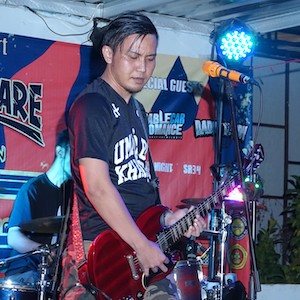 Fendy is a writer from Malang, Indonesia, who finds inspiration in local folklore, everyday struggles, and the unseen threads that connect people and places.
Fendy is a writer from Malang, Indonesia, who finds inspiration in local folklore, everyday struggles, and the unseen threads that connect people and places.
His stories often delve into themes of culture, identity, and the supernatural, blending reality with whispers of myth.
Beyond writing, he expresses his creativity through music, producing songs under the name "Nep Kid," available on various online platforms.
When not lost in words or melodies, he explores videography and digital media, always seeking new ways to tell stories.





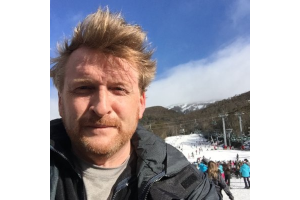


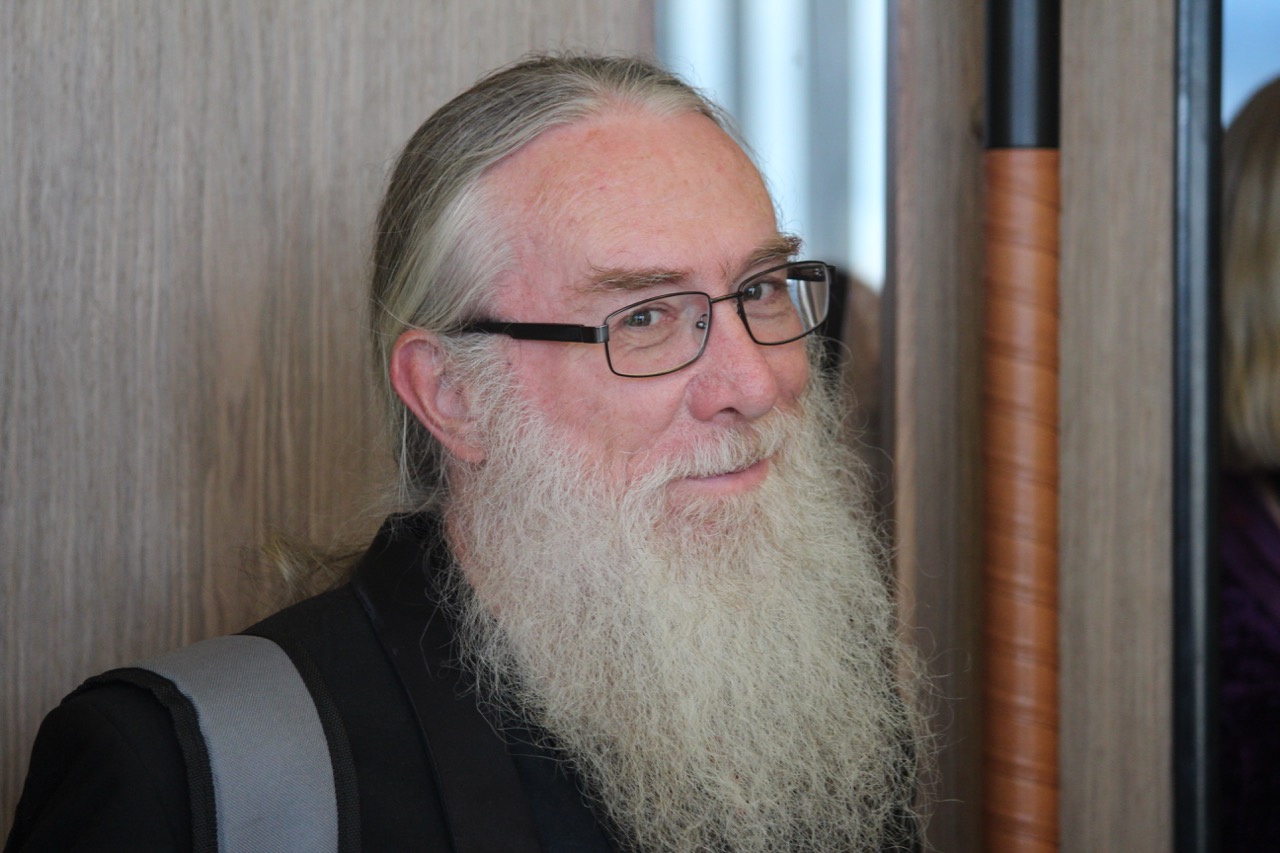

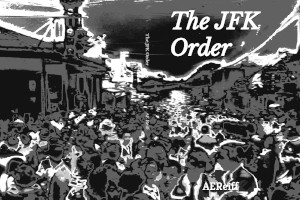




 Ed lives with his wife plus a magical assortment of native animals in tropical North Queensland.
Ed lives with his wife plus a magical assortment of native animals in tropical North Queensland. Geraldine Borella writes fiction for children, young adults and adults. Her work has been published by Deadset Press, IFWG Publishing, Wombat Books/Rhiza Edge, AHWA/Midnight Echo, Antipodean SF, Shacklebound Books, Black Ink Fiction, Paramour Ink Fiction, House of Loki and Raven & Drake
Geraldine Borella writes fiction for children, young adults and adults. Her work has been published by Deadset Press, IFWG Publishing, Wombat Books/Rhiza Edge, AHWA/Midnight Echo, Antipodean SF, Shacklebound Books, Black Ink Fiction, Paramour Ink Fiction, House of Loki and Raven & Drake Sarah Jane Justice is an Adelaide-based fiction writer, poet, musician and spoken word artist.
Sarah Jane Justice is an Adelaide-based fiction writer, poet, musician and spoken word artist. Tim Borella is an Australian author, mainly of short speculative fiction published in anthologies, online and in podcasts.
Tim Borella is an Australian author, mainly of short speculative fiction published in anthologies, online and in podcasts. Chuck McKenzie was born in 1970, and still spends much of his time there.
Chuck McKenzie was born in 1970, and still spends much of his time there.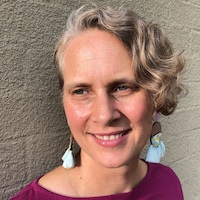 Merri Andrew writes poetry and short fiction, some of which has appeared in Cordite, Be:longing, Baby Teeth and Islet, among other places.
Merri Andrew writes poetry and short fiction, some of which has appeared in Cordite, Be:longing, Baby Teeth and Islet, among other places.
 Alistair Lloyd is a Melbourne based writer and narrator who has been consuming good quality science fiction and fantasy most of his life.
Alistair Lloyd is a Melbourne based writer and narrator who has been consuming good quality science fiction and fantasy most of his life.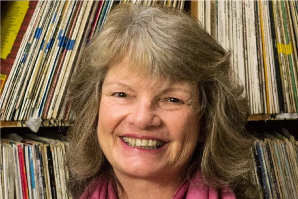 My time at Nambucca Valley Community Radio began back in 2016 after moving into the area from Sydney.
My time at Nambucca Valley Community Radio began back in 2016 after moving into the area from Sydney. Tara Campbell is an award-winning writer, teacher, Kimbilio Fellow, fiction co-editor at Barrelhouse, and graduate of American University's MFA in Creative Writing.
Tara Campbell is an award-winning writer, teacher, Kimbilio Fellow, fiction co-editor at Barrelhouse, and graduate of American University's MFA in Creative Writing. Barry Yedvobnick is a recently retired Biology Professor. He performed molecular biology and genetic research, and taught, at Emory University in Atlanta for 34 years. He is new to fiction writing, and enjoys taking real science a step or two beyond its known boundaries in his
Barry Yedvobnick is a recently retired Biology Professor. He performed molecular biology and genetic research, and taught, at Emory University in Atlanta for 34 years. He is new to fiction writing, and enjoys taking real science a step or two beyond its known boundaries in his Emma Louise Gill (she/her) is a British-Australian spec fic writer and consumer of vast amounts of coffee. Brought up on a diet of English lit, she rebelled and now spends her time writing explosive space opera and other fantastical things in
Emma Louise Gill (she/her) is a British-Australian spec fic writer and consumer of vast amounts of coffee. Brought up on a diet of English lit, she rebelled and now spends her time writing explosive space opera and other fantastical things in Margaret lives the good life on a small piece of rural New South Wales Australia, with an amazing man, a couple of pets, and several rambunctious wombats.
Margaret lives the good life on a small piece of rural New South Wales Australia, with an amazing man, a couple of pets, and several rambunctious wombats. Mark is an astrophysicist and space scientist who worked on the Cassini/Huygens mission to Saturn. Following this he worked in computer consultancy, engineering, and high energy research (with a stint at the JET Fusion Torus).
Mark is an astrophysicist and space scientist who worked on the Cassini/Huygens mission to Saturn. Following this he worked in computer consultancy, engineering, and high energy research (with a stint at the JET Fusion Torus).